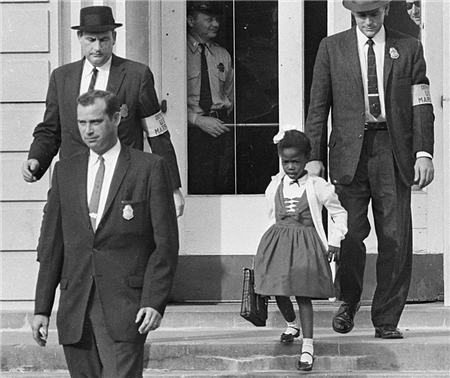
Member Lisa Gum, a speech pathologist working with elementary students in the North Carolina school system, leads us into thoughts about Black history. February is Black History Month and traditionally honors and celebrates extraordinary accomplishments by many African Americans throughout American history. But, what happens, Lisa questions, when we talk about the darker side of Black history? It is imperative to not only appreciate the accomplishment of Black Americans during February but also acknowledge the fact that African American citizens have had to overcome immeasurable odds from the very beginning. What happens when we begin to have uncomfortable conversations about race?
E-CLUB PROGRAM
PRESIDING TODAY IS: Lisa Gum, Member at Large
Welcome, all – visitors, fellow Rotarians, and guests alike to this E-Club program!
Remember the Four-Way Test!
At the beginning of each meeting, we remind ourselves of The Four-Way Test. Therefore, please remember to ask yourself always ...
Of the things we think, say, or do:
- Is it the TRUTH?
- Is it FAIR to all concerned?
- Will it build GOODWILL and BETTER FRIENDSHIPS?
- Will it be BENEFICIAL to all concerned?
Reflective Moments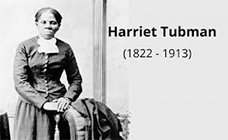
Leadership Quote
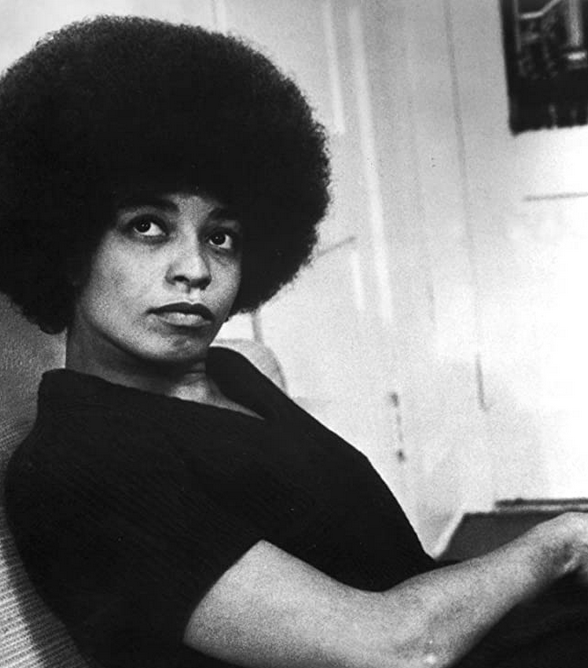
The Hill We Climb
Poem by Amanda Gorman, Video and Full Text
National Youth Poet Laureate and the youngest inaugural poet in U.S. history.Presidential Inauguration 2020
aflame and unafraid,
the new dawn blooms as we free it.
For there is always light,
if only we're brave enough to see it.
If only we're brave enough to be it."
Black History Month, An Educator's Viewpoint
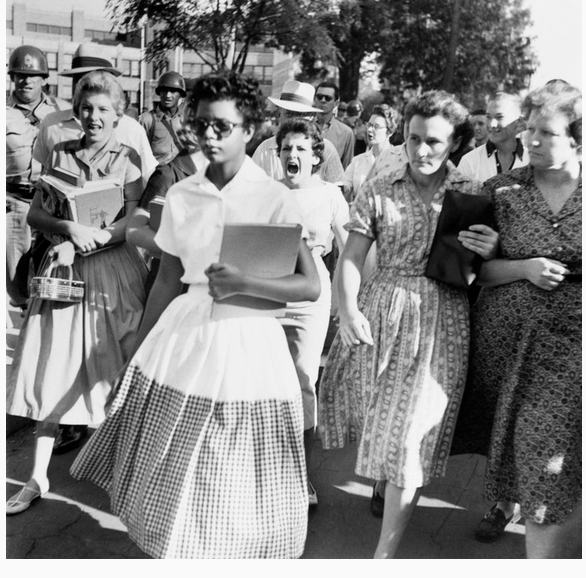
Certainly, celebrating black excellence and black joy is critical to promoting equality and cultural appreciation. But, what happens when we talk about the darker side of Black history? Should we ask ourselves how famous Black Americans make their marks on history by being the first Black Americans to achieve something? In 1947, Jackie Robinson became the first African American to play major league baseball. In 1940, Hattie McDaniel was the first African American to win an Oscar. McDaniel won the Academy Award for Best Supporting Actress by playing an enslaved woman in Gone with the Wind. Incidentally, she accepted the trophy in a segregated hotel and was only allowed into the ceremony as a special favor to the movie’s producer. In 1961, Charlayne Hunter-Gault became the University of Georgia’s first Black female student. On her arrival at school, she was met with racists’ chants and a brick thrown through her window. It is imperative to not only appreciate the accomplishment of Black Americans during February, but we must also acknowledge the fact that African American citizens have had to overcome immeasurable odds from the very beginning. What happens when we begin to have uncomfortable conversations about race?
Looking back on what Black history consists of in American education, struggles throughout African American history are often left out of the stories, often consisting of a short narrative telling the story of the Trans-Atlantic slave trade, in which millions upon millions of people were transported across the ocean from their motherland to be enslaved and brutalized for generations, then adding a few Martin Luther King, Jr. quotes and an admiring story of Rosa Parks representing the civil rights movement. The deeper history is fraught with brutality and inhumane treatment, with heroes such as Harriet Tubman and Sojourner Truth emerging as resisters to human bondage. For 250 years, the American economy thrived as a result of labor by the enslaved producing more and more wealth for those who owned people as their property. Over time, abolitionists began to protest the practice, yet many who preached abolition, including Thomas Jefferson and James Madison, continued to profit from the labor of enslaved people. After a bloody war and contentious legislation, the practice of owning humans as slaves was abolished. A period of reconstruction ensued, in which formerly enslaved people began to work for themselves, trying to make lives for their families in the face of extreme racism. Reconstruction was met with violence and brutality as the Ku Klux Klan formed to oppose the efforts. The American Constitution was amended to include the 13th amendment that made slavery illegal, except in the case of incarceration.
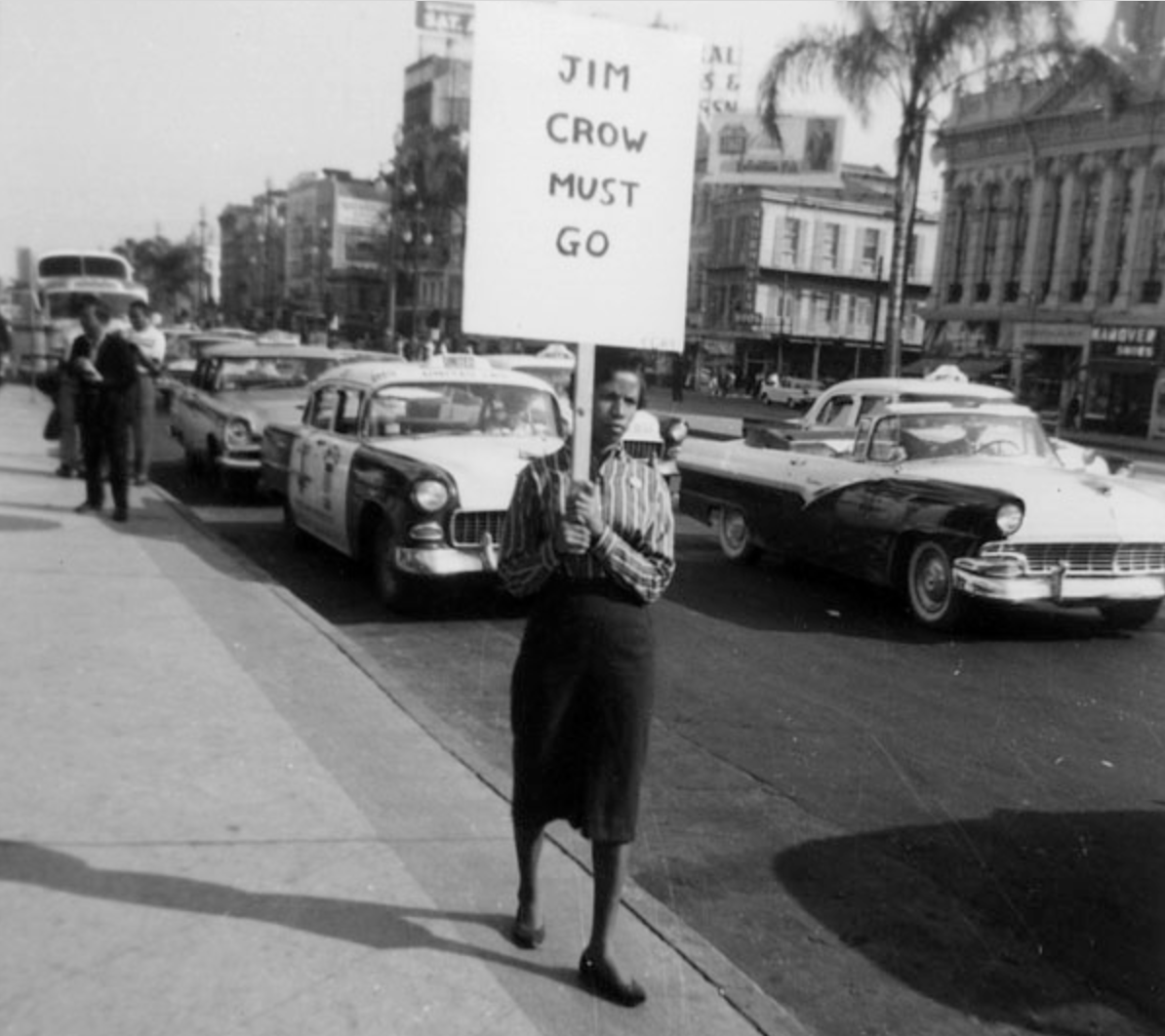 After the 13th amendment, African American men and women were convicted of small petty crimes and faced excessive prison sentences, during which time they worked in cotton fields and built roads and rails. Thus continued an economy based on free labor produced by Black people. Yet, during that time, Black people bought land, opened shops, attended schools, and were elected to town councils and state governments. Backlash over Black excellence and success prompted Jim Crowe laws that prohibited African American citizens from voting, going to public libraries, sitting in the front of busses, drinking from certain water fountains, using undesignated bathrooms, and dining in white restaurants.
After the 13th amendment, African American men and women were convicted of small petty crimes and faced excessive prison sentences, during which time they worked in cotton fields and built roads and rails. Thus continued an economy based on free labor produced by Black people. Yet, during that time, Black people bought land, opened shops, attended schools, and were elected to town councils and state governments. Backlash over Black excellence and success prompted Jim Crowe laws that prohibited African American citizens from voting, going to public libraries, sitting in the front of busses, drinking from certain water fountains, using undesignated bathrooms, and dining in white restaurants.
The civil rights movement of the 1960s brought about brutal and deadly fights for basic rights of Black citizens. But racial oppression and racist policies did not end with the Civil Rights movement. They continue to this day.
There are many important questions to ask during Black history month. Did your history classes teach about the massacre in Tulsa Oklahoma or the coup against the Black-led government in Wilmington, North Carolina? When did you learn about Emmitt Till? What systems are in place that have created “bad” neighborhoods and limited opportunities for people of color? Have you learned the definitions of terms such as gentrification and red-lining? What underlying stereotypes or biases guide your perspective of race? How might Black history provide a more comprehensive look at the struggles of African Americans while continuing to celebrate Black excellence?
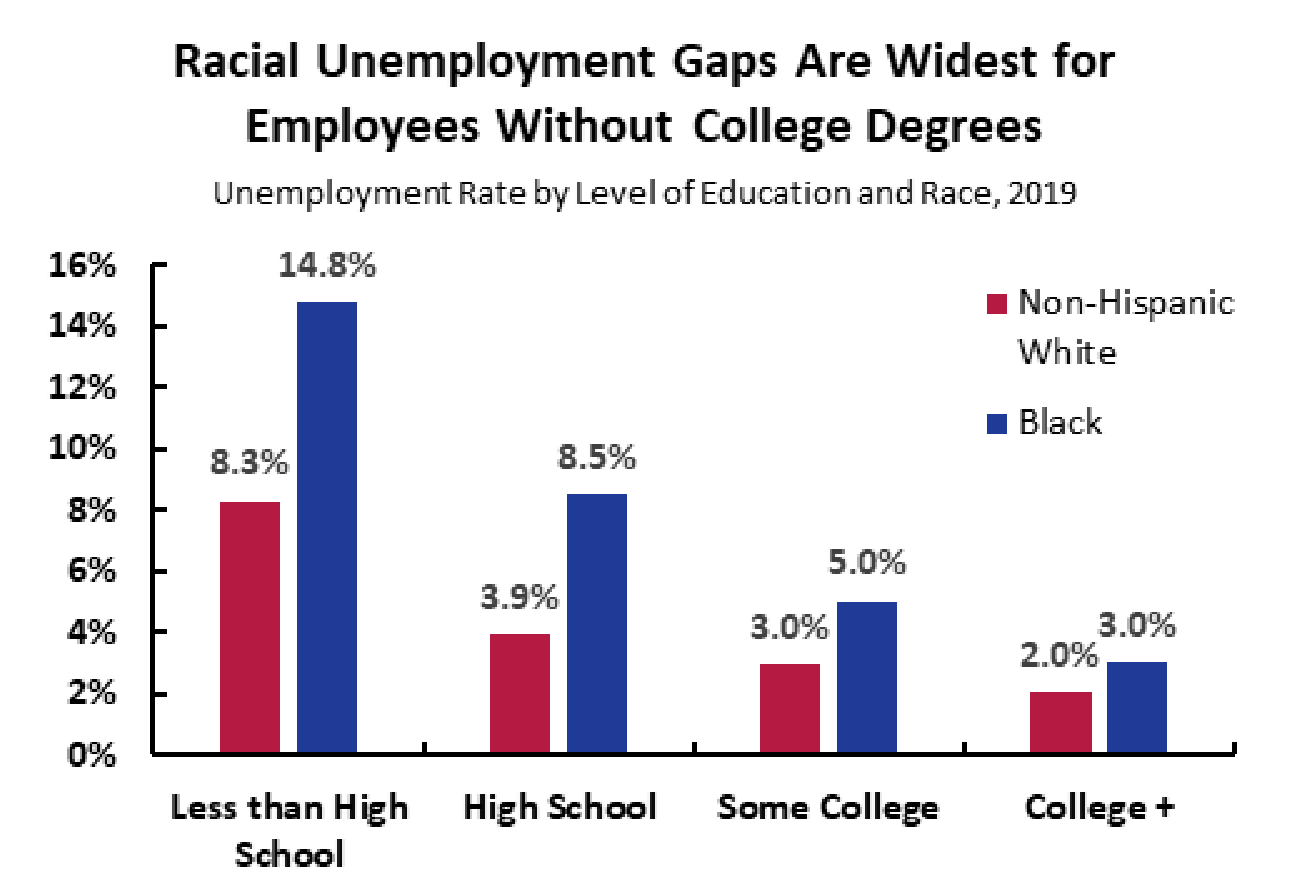 ABCs of Black History
ABCs of Black History
Here are some ABCs of Black history to stimulate further exploration during Black history month, as well as all year long.
Anti-racism refers to actively and consistently challenging racism by supporting changes in political, economic, and social life.
Black hairstyles such as braids and cornrows have been banned in schools, prompting legislation such as the Crown Act.
Critical Race Theory is an advanced law curriculum focusing on how systems perpetuate racial disparity. Dred Scott supreme court ruling that decided an enslaved person could not have any rights due to their status as property.
Equity versus Equality: Equity is being fair and impartial while Equality is the state of being equal. While equality refers to providing the exact same resources across the board, equity takes into account where funds, resources, and opportunities are most needed. Equity recognized that each person has different circumstances and needs.
Freedom Riders were civil rights activists who, in 1961, rode interstate buses into the Southern states to protest segregation.
Great Northern Migration: over 6 million African Americans moved from the rural south to more urban areas of the north between 1916 and 1970.
Harlem Renaissance refers to a renewal of African American arts and culture in New York City during the decades of the 1920s and 1930s.
Institutional racism is institutional policies and practices that generate different outcomes for different groups of people 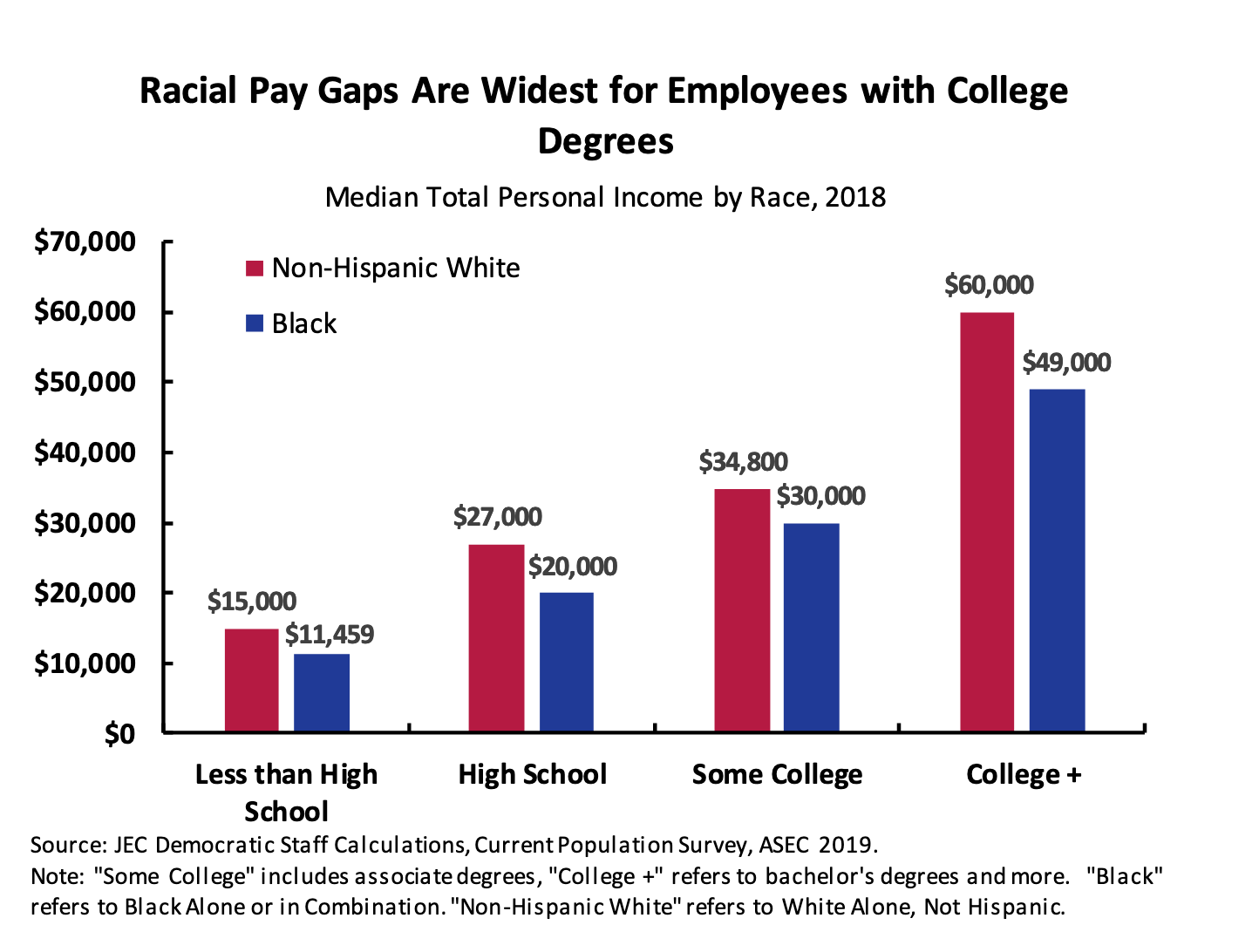 based on their race. The effect has been to create advantages for white people and disadvantages for Black people. An example is a practice known as redlining, in which government policies restricted the ability of people to gets loans to buy or improve their homes in neighborhoods with high concentrations of African Americans (Potapchuk, Leiderman, Bivens, and Major, 2005.)
based on their race. The effect has been to create advantages for white people and disadvantages for Black people. An example is a practice known as redlining, in which government policies restricted the ability of people to gets loans to buy or improve their homes in neighborhoods with high concentrations of African Americans (Potapchuk, Leiderman, Bivens, and Major, 2005.)
Juneteenth is a newly recognized federal holiday that marks the 1865 final emancipation of slaves in Texas. Texas was the last state to acknowledge the Emancipation Proclamation. Texas citizens continued to enslave people for two and a half years after the proclamation had been signed.
Ku Klux Klan started when former Confederate fighters banded together to violently oppose efforts of Reconstruction and maintain white supremacy following the Civil War. Factions of the Ku Klux Klan continue to exist even today.
Little Rock Nine were a group of nine Black students enrolled at Little Rock Central High School following the landmark Brown v Board of Education ruling that public school segregation was unconstitutional. The governor of Arkansas activated the AR National Guard to block the Black students from entering the high school.
Microaggressions are intentional or unintentional verbal or nonverbal slights, snubs, or insults that convey derogatory messages to target people belonging to certain groups. Following a person of color around in a store or making subtle negative comments involving race are examples of microaggressions.
Niagara Movement organized chapters of activists fighting for civil rights for African Americans in 1905. Oppression occurs when a more powerful group systematically subjugates a less powerful group. Oppression=Power + Prejudice (Hardman and Jackson)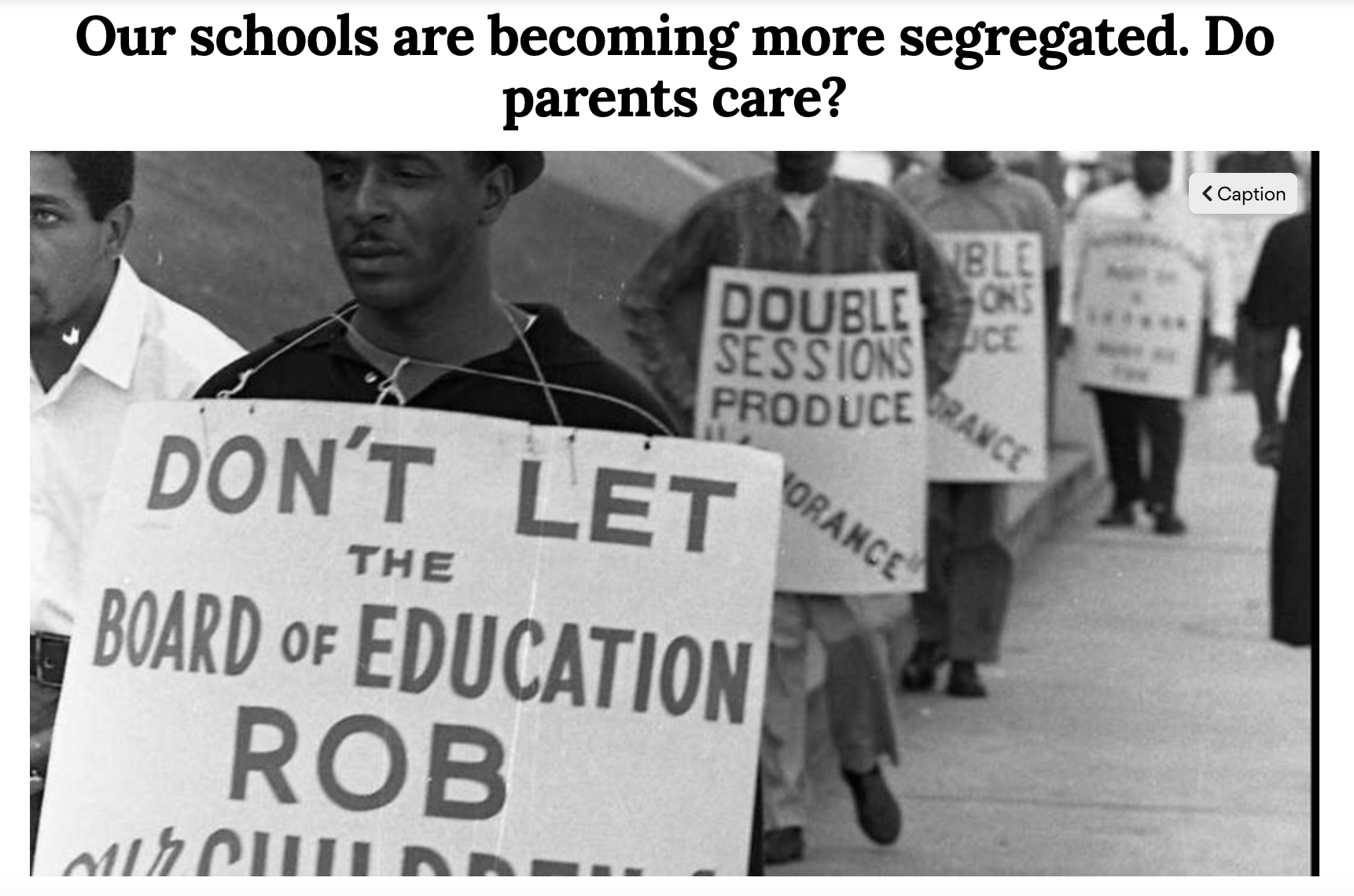 Plessy versus Ferguson was the Supreme Court decision ruling that racial segregation laws did not violate the U.S. Constitution.
Plessy versus Ferguson was the Supreme Court decision ruling that racial segregation laws did not violate the U.S. Constitution.
Question to ask: why does talking about race and racism make us feel uncomfortable?
Reparations search for and support initiatives that address damages caused by human rights violations to assist in overcoming losses suffered as a consequence of those abuses.
Separate but Equal: Segregation laws.
Tulsa Race Massacre occurred when Black residents of Greenwood, OK were attacked and their businesses and banks destroyed by a white American mob in 1921.
Unconscious bias is the neuroscientific concept that racial bias is associated with the amygdala response.
Voting rights for minorities were installed by the Voting Rights Act of 1965. However, those rights were weakened in 2013 when the Supreme Court removed the requirement that jurisdictions with significant histories of voter discrimination obtain preliminary federal approval from the US Dept of Justice before advancing new voting practices or procedures.
Wilmington Insurrection occurred in 1898 when a white mob seized control of the Black-owned Wilmington NC newspaper and ousted Black government officials from a mixed-race government, installing unelected white officials. Black residents were killed or run out of town, with their homes and businesses overtaken by white men who installed the “White Declaration of Independence.”
Xenophobia is fear, hatred, and prejudice against people from other countries. Of note, a Pew Research poll indicates that immigrants now make up 9% of America’s Black population.
Zoning is an exclusionary practice using legal ordinances to keep given communities from using certain types of land for commercial or residential purposes, and regulating types of buildings that can be developed in certain areas. For example, minimum lot size requirements, minimum square footage requirements, prohibition of multi-family homes, and building height limits are zoning restrictions.
Helpful Links
Here are some helpful links if you want to learn more about Black history.
